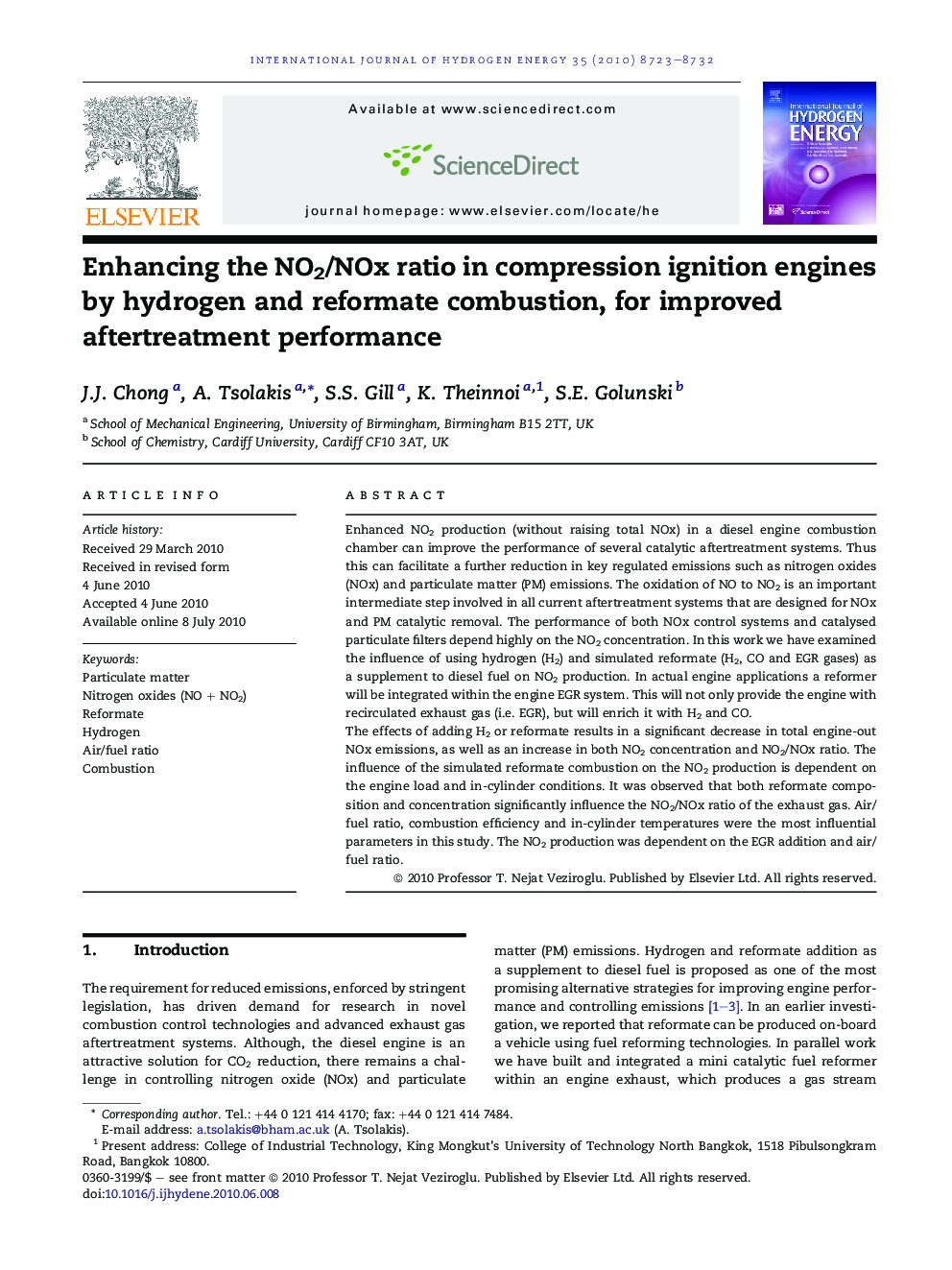| Article ID | Journal | Published Year | Pages | File Type |
|---|---|---|---|---|
| 1280454 | International Journal of Hydrogen Energy | 2010 | 10 Pages |
Enhanced NO2 production (without raising total NOx) in a diesel engine combustion chamber can improve the performance of several catalytic aftertreatment systems. Thus this can facilitate a further reduction in key regulated emissions such as nitrogen oxides (NOx) and particulate matter (PM) emissions. The oxidation of NO to NO2 is an important intermediate step involved in all current aftertreatment systems that are designed for NOx and PM catalytic removal. The performance of both NOx control systems and catalysed particulate filters depend highly on the NO2 concentration. In this work we have examined the influence of using hydrogen (H2) and simulated reformate (H2, CO and EGR gases) as a supplement to diesel fuel on NO2 production. In actual engine applications a reformer will be integrated within the engine EGR system. This will not only provide the engine with recirculated exhaust gas (i.e. EGR), but will enrich it with H2 and CO.The effects of adding H2 or reformate results in a significant decrease in total engine-out NOx emissions, as well as an increase in both NO2 concentration and NO2/NOx ratio. The influence of the simulated reformate combustion on the NO2 production is dependent on the engine load and in-cylinder conditions. It was observed that both reformate composition and concentration significantly influence the NO2/NOx ratio of the exhaust gas. Air/fuel ratio, combustion efficiency and in-cylinder temperatures were the most influential parameters in this study. The NO2 production was dependent on the EGR addition and air/fuel ratio.
